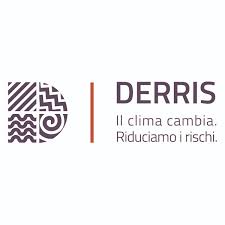
DERRIS – DERRIS – DisastEr Risk Reduction InSurance
Project Overview
The recent increase in the frequency of extreme weather events showed how limited is the limitations of the public administration (PA) in terms of prevention and management of risks and emergencies.
Many small and medium-sized enterprises (SMEs) lack adequate skills in risk assessment and risk management. In cases where risk management plans do exist, such plans rarely take weather events into consideration (Ace European Risk Briefing, 2012).
Insurance companies have the know-how, the experience, and the tools to evaluate risks related to climate change and to implement specific interventions that could reduce consequent damage and losses. Urban adaptation processes could be highly improved in the Italian context through a partnership between the public sector, SMEs and insurance companies, which could significantly improve urban adaptation processes in Italy.
LIFE DERRIS project set out to:
- transfer knowledge of how to assess and manage risks caused by catastrophic weather events from insurance companies to public administrations and SMEs. This would create resilient companies and boost the implementation of effective local climate change adaptation plans;
- disseminate evaluation tools and skills for risk prevention developed by the insurance industry among public administration bodies and SMEs;
- implement innovative forms of public-private governance for climate catastrophes, involving SMEs, public administrations and insurance companies. These would be consistent with European guidelines (the EU Adaptation Strategy and Green Paper on the insurance of natural and man-made disasters) and favour the regulatory approach already undertaken by several European countries; and
- test the adoption of innovative financial instruments (e.g. impact investment) as novel adaptation solutions.
Project Results
The LIFE DERRIS project successfully tested an innovative model of public-private partnership between insurers, public administrations and SMEs to increase urban resilience to climate change, including through risk reduction tools for SMEs. Specific actions included:
- risk assessment/risk management training for 296 people from SMEs and public authorities in Turin and 10 other cities in Italy;
- development of a Climate Risk Assessment and Management (CRAM) Tool to help enterprises to identify adaptation measures that they should implement to enhance resilience. After trials with 30 companies in Turin, this was rolled out to more than 3 800 companies across Italy, of which more than 300 calculated their firm’s risk index;
- creation of 128 company adaptation action plans (CAAPs), which outlined a great number of specific steps the participating companies could take to cope with floods, drought, high temperatures, high winds and other extreme weather events;
- development and implementation in part of Turin of a new governance model for climate risk management, the Integrated District Adaptation Plan. This public-private partnership was subsequently formalised through local and national after-LIFE agreements;
- provision of access to credit (through Unipol) for companies that have a CAAP in place, to favour the implementation of resilience measures; and
- guidance to enable other insurance and financial services companies to replicate the innovations proposed by the project.
The municipalities of Milan, Avigliana and Almese agreed to replicate the measures introduced by LIFE DERRIS in Turin.

